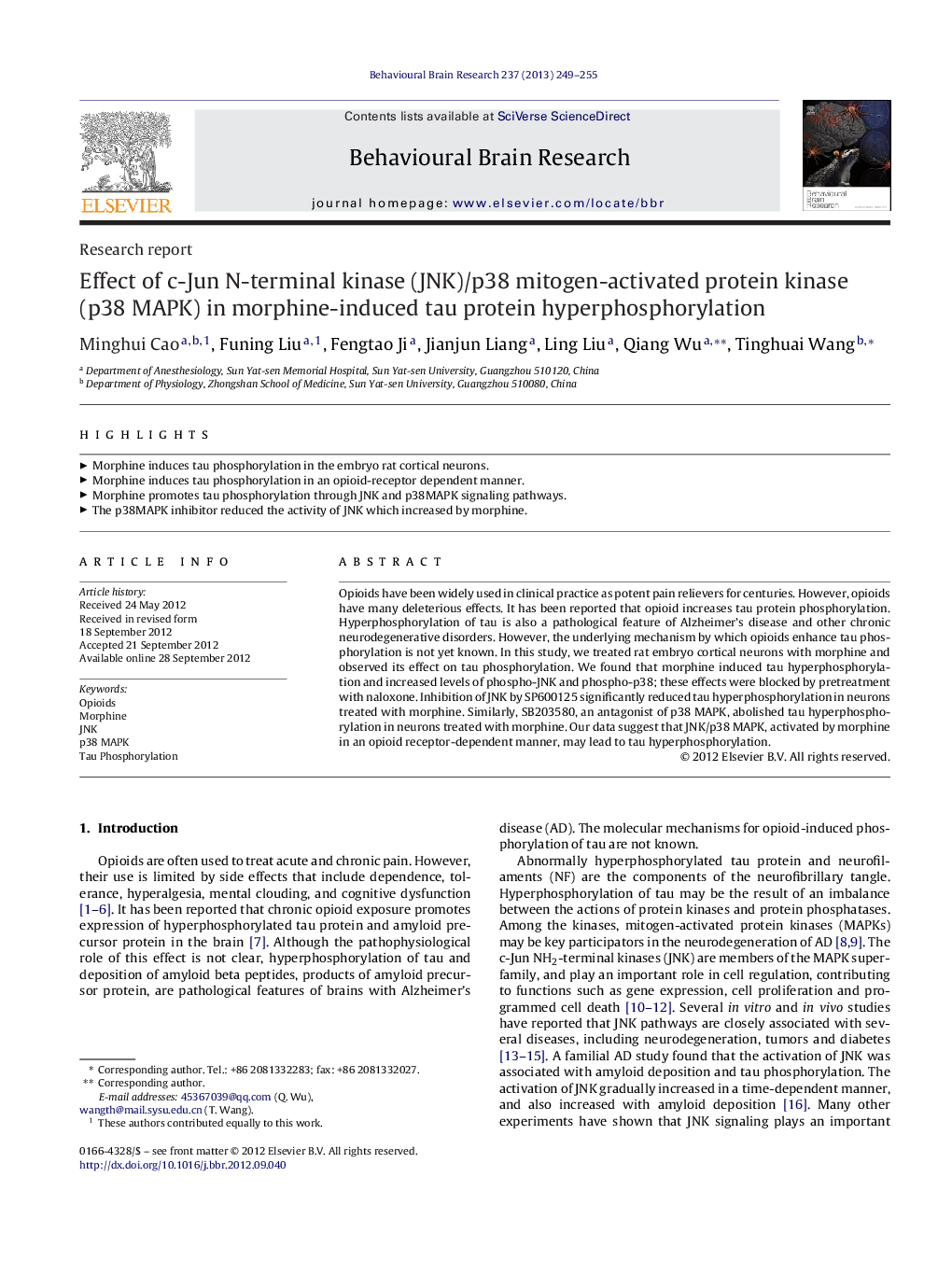| Article ID | Journal | Published Year | Pages | File Type |
|---|---|---|---|---|
| 6259358 | Behavioural Brain Research | 2013 | 7 Pages |
Opioids have been widely used in clinical practice as potent pain relievers for centuries. However, opioids have many deleterious effects. It has been reported that opioid increases tau protein phosphorylation. Hyperphosphorylation of tau is also a pathological feature of Alzheimer's disease and other chronic neurodegenerative disorders. However, the underlying mechanism by which opioids enhance tau phosphorylation is not yet known. In this study, we treated rat embryo cortical neurons with morphine and observed its effect on tau phosphorylation. We found that morphine induced tau hyperphosphorylation and increased levels of phospho-JNK and phospho-p38; these effects were blocked by pretreatment with naloxone. Inhibition of JNK by SP600125 significantly reduced tau hyperphosphorylation in neurons treated with morphine. Similarly, SB203580, an antagonist of p38 MAPK, abolished tau hyperphosphorylation in neurons treated with morphine. Our data suggest that JNK/p38 MAPK, activated by morphine in an opioid receptor-dependent manner, may lead to tau hyperphosphorylation.
⺠Morphine induces tau phosphorylation in the embryo rat cortical neurons. ⺠Morphine induces tau phosphorylation in an opioid-receptor dependent manner. ⺠Morphine promotes tau phosphorylation through JNK and p38MAPK signaling pathways. ⺠The p38MAPK inhibitor reduced the activity of JNK which increased by morphine.
